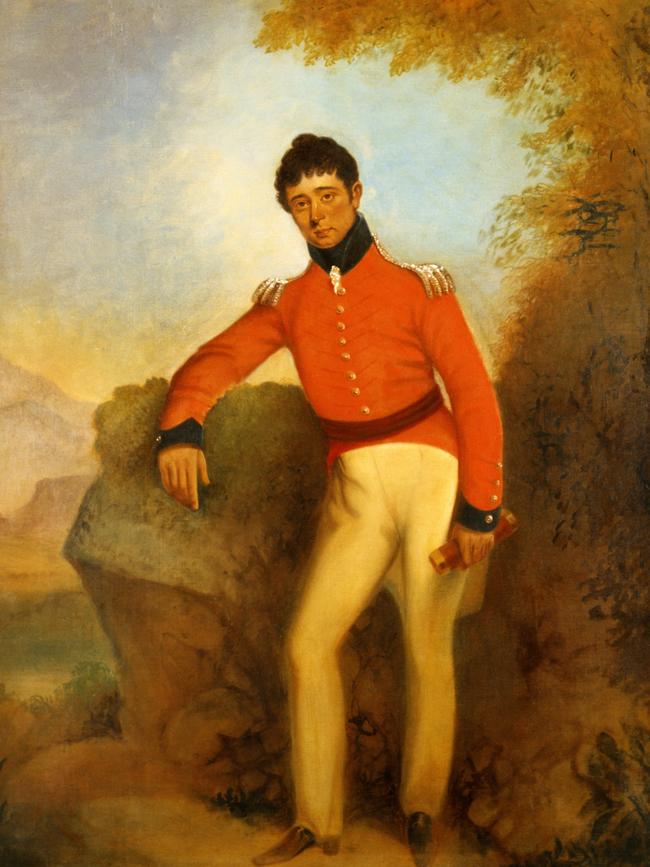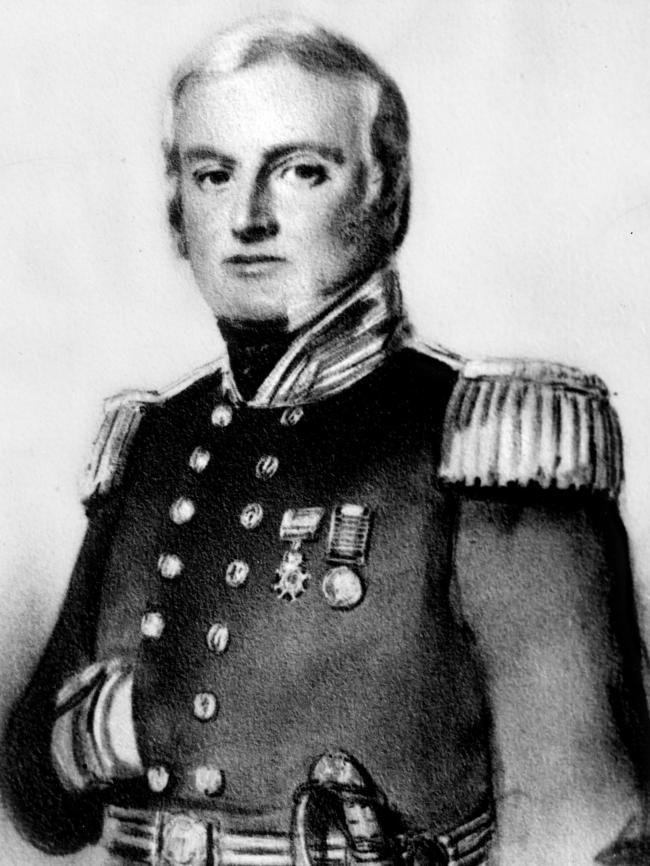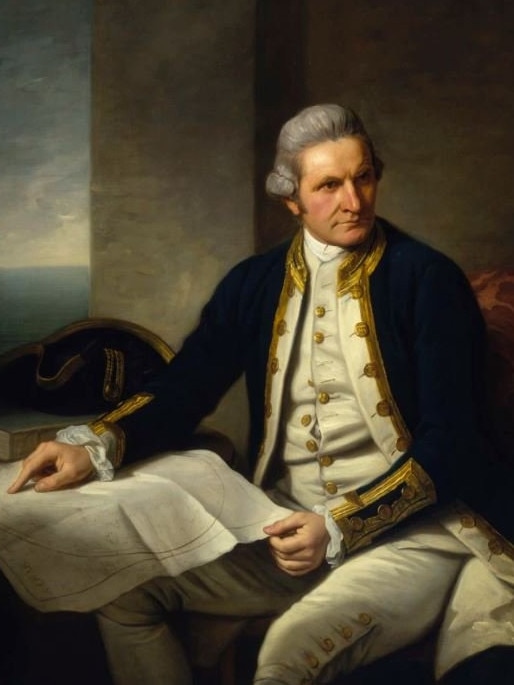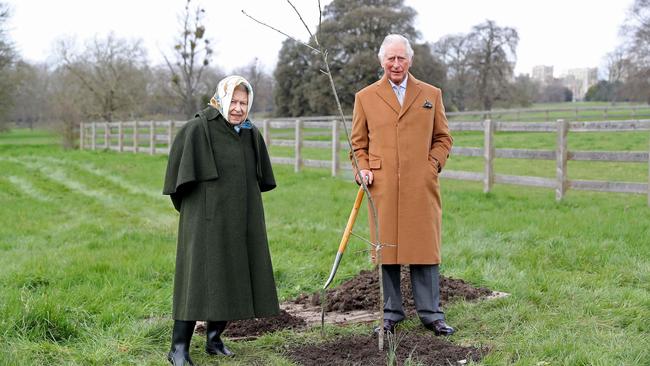Geoffrey Robertson QC is heading to Adelaide with new show and book targetting ‘bad people’
Geoffrey Robertson QC says SA shouldn’t be cocky about the lack of convicts in its early history
SA Weekend
Don't miss out on the headlines from SA Weekend. Followed categories will be added to My News.
Geoffrey Robertson QC is musing about the nature of bad people when he suddenly turns on some of South Australia’s founders.
“Don’t get me started on … Governor (John) Hindmarsh and his accomplices (James Hurtle) Fisher and (Colonel William) Light, who contrary to orders by the King to the South Australia Company, expropriated Aboriginal land without compensation and sold it at a great profit,” the London-based Aussie human rights advocate rails.
“South Australians may boast that their capital city is the only one not started by convicts, which is true – it was founded by corporate criminals.”
Robertson will be able to share more of his views about local historical figures – and everything from the royal family to COVID-19 vaccines – when his show, It’s No Longer Hypothetical, hits town at the end of the month.
But for now, he’s focused on more contemporary targets with a new book, Bad People and How to get Rid of Them, a Plan B for Human Rights as he explained in this exchange

.

Roy Eccleston:Given that there are a lot of bad people in the world, which ones are you targeting?
Geoffrey Robertson: By “bad people” I mean individuals who have been involved in human rights abuses or serious corruption. We should keep them out of our country, and out of our banks, our universities, our hospitals and our beaches.
RE: And you say we need a new law to target these people – but doesn’t the International Criminal Court deal with them already?
GR: The International Criminal Court is an important development, but since it began in 2002 it has only managed to lock up a few mid-African warlords. The UN Security Council, which has the power and the duty to refer human rights abusers to the ICC, is poleaxed – three of the five big powers, Russia and China and the US, veto any investigation of their allies. Russia, for example, has a naval base in Syria and vetoes any attempt to prosecute Assad, just as the US vetoes any inquiry that could embarrass Israel.
RE: So the new law you helped devise, first passed in the US in 2012, imposes sanctions like visa bans and asset freezes on officials who contributed to the death of Russian Sergei Magnitsky?
GR: Yes. Magnitsky was an ordinary Russian – a tax auditor, not a dissident – who died from a beating in a police cell. Think George Floyd, without the cameras. The US imposed sanctions on some of those responsible – including cruel judges who denied him bail and prison doctors who failed to treat him, a common background to deaths in custody. The point that matters is that no one was prosecuted: the state turned a blind eye, because Magnitsky had blown the whistle on state corruption.


RE: So the law would target the officials who let these bad things happen, like, as you put it, “the train drivers of Auschwitz”?
GR: By that I mean the lickspittle judges in Russia and Hong Kong and elsewhere who do the state’s bidding by denying bail to dissidents and convicting them without evidence. I mean doctors who officiate at torture sessions and accountants who hide ill-gotten gains. These people all have a choice. They are not acting under duress, even if they might need courage to do the right thing, if as a result they are denied promotion or job opportunities.
RE: Why should Australia get involved?
GR: Australia has an important role, because it’s a highly desirable place for bad people, who want to use its commercial facilities, send their children to its universities and their parents to its hospitals. There are 31 countries, all advanced democracies, with Magnitsky laws and I hope Australia will become the 32nd when parliament gets round to debating the report from its Human Rights Subcommittee, which suggested that it should join this network pressing the values of open societies.
RE: How do we decide who is bad, and is that changing?
GR: It’s always been possible to judge people by what they can be proved to have done. We have a set of human rights standards – the Universal Declaration, handed by Eleanor Roosevelt to our own foreign minister, “Doc” Evatt, when he was president of the UN General Assembly back in 1948. That laid down ground rules by which political leaders and their apparatchiks, and generals and their officers, can still be judged.
RE: So what about Captain Cook or Donald Trump? Some think they’re bad.
GR: Captain Cook was a great explorer, who should always be remembered in our history. His climb to the top of Lizard Island to descry the break in the Barrier Reef through which he managed to sail the Endeavour back to England led to the Settlement at Botany Bay in 1788. Otherwise, this country would have been colonised by the French, and still be a colony, or by the cruel and incompetent Portuguese. But we should also remember that Cook shot at, and may have killed, the first Indigenous person he saw on the shore at Botany Bay.
Please don’t start me on Donald Trump. Or Governor Hindmarsh …
RE: How do we decide anything rationally with the rise of social media where lies and propaganda influence opinion?

GR: There is a nice quote I came across the other day by (US economist and columnist) Paul Krugman, who asks why the Trump people never tried rationality. “Because rationality has a well-known liberal bias.” As for misinformation and conspiracy theories that morons actually believe, I think they should be left online but with a correction from the host signalling that they are wrong. That should have been done to Donald Trump’s tweets, rather than to ban them – it is surely in the public interest for the public to know that its president is mad.
RE: Is an Australian Republic still a chance?
GR: The Republican movement should flourish after the Queen goes – do Australians really want to be reigned over for the next hundred years by white Anglo-German men – Charles III, William V and George VII? ... a true Republican wants a head of state elected by Australians.
Geoffrey Robertson: It’s No Longer Hypothetical, Adelaide Festival Theatre, May 29, adelaidefestivalcentre. com.au. Bad People and How to Be Rid of Them, A Plan B for Human Rights, by Geoffrey Robertson (Vintage, $32.99).


